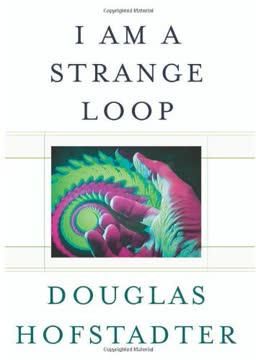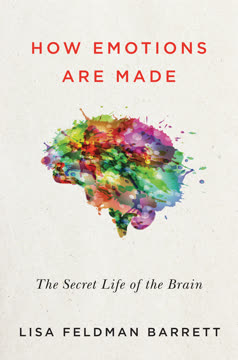Key Takeaways
1. The Ego Tunnel: Our Conscious Reality is a Simulation
Consciousness is the appearance of a world.
Virtual reality in our minds. The Ego Tunnel is a metaphor for conscious experience, representing how our brains construct a simulated model of reality. This model is not a direct representation of the external world, but rather a highly selective and simplified version created by our neural processes. Our subjective experience of reality is like looking through a tunnel, where we only perceive a small fraction of what actually exists.
Transparency of experience. A key feature of the Ego Tunnel is its transparency - we are unaware of the constructive processes behind our conscious experience. This transparency creates the illusion that we are in direct contact with reality, when in fact we are always experiencing a mediated version of the world. Our brains have evolved to hide the complex neural machinery behind our perceptions, emotions, and thoughts, presenting us with a seemingly seamless and immediate experience of the world and ourselves.
2. No Self: We Are Self-Less Ego Machines
We are self-less Ego Machines.
The self as a model. Contrary to our intuitive belief in a unified, persistent self, neuroscience and philosophy suggest that the self is a complex model created by the brain. This self-model is not a thing or an essence, but a process - a constantly updating representation that allows us to navigate the world and interact with others. The feeling of being a unified self is an illusion created by the seamless integration of various neural processes.
Evolutionary function. The self-model evolved as a useful tool for survival and social interaction. It allows us to predict our own behavior, understand the behavior of others, and coordinate complex social interactions. However, recognizing the constructed nature of the self doesn't negate its functional importance - it remains a crucial aspect of human cognition and experience, even if it's not the unchanging, essential entity we often assume it to be.
3. Out-of-Body Experiences: Insights into Selfhood
Out-of-body experiences are a perfect entry point.
Disrupting the self-model. Out-of-body experiences (OBEs) provide valuable insights into the nature of selfhood and bodily awareness. These experiences, whether spontaneous or induced in laboratory settings, demonstrate how the brain's representation of the body and its location in space can be manipulated. OBEs reveal the constructed nature of our sense of embodiment and spatial self-location.
Research implications. Scientific studies of OBEs, including those using virtual reality to induce similar experiences in healthy subjects, are helping to unravel the neural mechanisms behind our sense of self. This research has implications for understanding disorders of self-experience, developing new therapeutic approaches, and even enhancing our normal sense of embodiment. By studying these altered states of consciousness, we gain a deeper understanding of how the brain creates our everyday experience of being an embodied self in the world.
4. Mirror Neurons: The Basis of Social Cognition
We use our own body-model in the brain to simulate them.
Understanding others. Mirror neurons, first discovered in monkeys and later found in humans, provide a neural basis for understanding the actions, intentions, and emotions of others. These neurons fire both when we perform an action and when we observe someone else performing the same action, creating a direct link between self and other at a neural level.
Empathy and social cognition. The mirror neuron system plays a crucial role in empathy, allowing us to simulate the experiences of others in our own minds. This ability forms the foundation of social cognition, enabling us to navigate complex social interactions, cooperate with others, and build cultural institutions. The discovery of mirror neurons has implications for understanding social disorders, language acquisition, and the evolution of human culture.
5. Free Will: An Illusion Created by Our Brains
Experiencing yourself as a coherent acting self and the direct cause of change.
Neural precursors of action. Neuroscientific research suggests that our conscious experience of deciding to act is preceded by unconscious brain activity. This challenges our intuitive notion of free will, indicating that our actions may be initiated by neural processes before we become consciously aware of our intention to act.
Implications for responsibility. While this research doesn't necessarily negate the concept of free will entirely, it does require us to rethink our understanding of human agency and moral responsibility. The illusion of free will may serve important psychological and social functions, even if it doesn't accurately reflect the underlying neural processes. This raises complex ethical and legal questions about how we should conceptualize personal responsibility in light of our evolving understanding of the brain.
6. Lucid Dreaming: A Window into Consciousness
Lucid dreams are fascinating because our naive realism—our unawareness of living our lives in an Ego Tunnel—is temporarily suspended.
Conscious awareness in dreams. Lucid dreaming, where the dreamer becomes aware that they are dreaming, provides a unique opportunity to study consciousness. In these states, individuals can maintain self-awareness and even exert some control over the dream content, offering insights into the nature of consciousness and the relationship between perception and reality.
Research potential. Studying lucid dreams can help us understand:
- The neural basis of self-awareness
- The relationship between consciousness and metacognition
- The nature of reality construction in the brain
- Potential therapeutic applications for mental health disorders
Lucid dreaming research may also have implications for developing new techniques to enhance creativity, problem-solving, and personal growth.
7. Artificial Consciousness: Ethical Implications
We must start thinking about what we want to do with all this new knowledge—and what a good state of consciousness is in the first place.
Possibility of machine consciousness. As our understanding of consciousness grows and technology advances, the possibility of creating artificial systems with conscious experiences becomes more plausible. This raises profound ethical questions about the nature of consciousness, the moral status of artificial beings, and our responsibilities towards them.
Ethical considerations. We must grapple with questions such as:
- What criteria should we use to determine if a machine is conscious?
- Do conscious machines have rights? If so, what kind?
- Is it ethical to create conscious beings that might suffer?
- How do we ensure the well-being of artificial conscious entities?
These questions require a careful consideration of both the scientific understanding of consciousness and our ethical frameworks.
8. Psychoactive Substances: Towards a Rational Drug Policy
Which brain states should be legal?
Rethinking drug policy. Current approaches to drug policy are often based on outdated information and moral panic rather than scientific evidence. A more rational approach would consider the actual risks and benefits of various substances, their potential therapeutic uses, and the societal costs of prohibition versus regulation.
Consciousness exploration. Psychoactive substances can offer unique insights into the nature of consciousness and the human mind. Some key considerations:
- Potential therapeutic applications (e.g., MDMA for PTSD, psilocybin for depression)
- Cognitive enhancement and its ethical implications
- The role of altered states in personal growth and creativity
- Balancing individual freedom with public health concerns
A nuanced, evidence-based approach to drug policy could minimize harm while maximizing potential benefits to individuals and society.
9. Consciousness Ethics: Defining Good States of Mind
What is a good state of consciousness?
Evaluating conscious states. As our ability to manipulate consciousness increases through technology and neuroscience, we need to develop ethical frameworks for assessing the value of different states of consciousness. This involves considering factors such as well-being, cognitive function, emotional balance, and social impact.
Practical implications. Consciousness ethics has wide-ranging implications:
- Mental health treatment: Defining therapeutic goals
- Education: Optimizing states for learning and creativity
- Technology: Designing interfaces and virtual realities
- Social policy: Regulating consciousness-altering technologies and substances
This emerging field requires interdisciplinary collaboration between neuroscientists, philosophers, psychologists, and policymakers to develop comprehensive and nuanced approaches to enhancing human consciousness.
10. Neuroanthropology: A New Understanding of Human Nature
We are gene-copying biorobots, living out here on a lonely planet in a cold and empty physical universe.
Integrating neuroscience and anthropology. Neuroanthropology combines insights from neuroscience with anthropological perspectives to provide a more comprehensive understanding of human nature. This approach recognizes that our brains and cognitive processes are shaped by both biological evolution and cultural experiences.
Implications for human self-understanding. Neuroanthropology challenges traditional notions of human nature and selfhood:
- It emphasizes the plasticity of the human brain and its responsiveness to cultural influences
- It highlights the role of embodied cognition in shaping our understanding of the world
- It provides new perspectives on phenomena like religious experiences, social bonding, and cultural practices
This integrated approach can inform fields ranging from education and mental health to social policy and technology design, offering a more nuanced and scientifically grounded view of what it means to be human.
Last updated:
FAQ
What's The Ego Tunnel about?
- Exploration of Consciousness: The Ego Tunnel by Thomas Metzinger explores the nature of consciousness, proposing that the self is an illusion crafted by the brain.
- Ego Tunnel Metaphor: It introduces the "Ego Tunnel" metaphor, suggesting our conscious experience is a selective representation of reality, filtering out much of the external world.
- Interdisciplinary Approach: Metzinger combines philosophy, neuroscience, and psychology to offer a comprehensive understanding of consciousness, emphasizing empirical data's role in philosophical discussions.
Why should I read The Ego Tunnel?
- Understanding Selfhood: The book provides a profound perspective on self and consciousness, potentially reshaping your understanding of personal identity.
- Engaging with Research: It presents cutting-edge neuroscience and psychology research, making complex ideas accessible and relevant to contemporary discussions.
- Philosophical Insights: Metzinger challenges readers to reconsider beliefs about the self, free will, and consciousness, promoting critical thinking.
What are the key takeaways of The Ego Tunnel?
- Self as Illusion: The self is not a fixed entity but a dynamic construct created by brain processes, challenging the notion of a singular "self."
- Selective Conscious Experience: Consciousness is a limited representation of reality, shaped by evolutionary processes and sensory limitations.
- Ethical Implications: The book discusses ethical challenges posed by neuroscience advancements, particularly regarding consciousness and moral responsibility.
What are the best quotes from The Ego Tunnel and what do they mean?
- "There is no such thing as a self.": This encapsulates the argument that the self is an illusion, urging readers to rethink personal identity.
- "Consciousness is the appearance of a world.": It highlights that consciousness creates a subjective experience of reality, not direct access to the external world.
- "The Ego is a transparent mental image.": This suggests our perception of self is a constructed representation, often mistaken for reality.
What is the Ego Tunnel metaphor in The Ego Tunnel?
- Conscious Experience as a Tunnel: The metaphor illustrates how our conscious experience is a narrow, selective representation of vast external reality.
- Dynamic Inner Portrait: It emphasizes that our brains create a dynamic inner portrait of reality, experienced as conscious life.
- Understanding Reality: By viewing consciousness as a tunnel, Metzinger encourages questioning how subjective experiences may not reflect true reality.
How does Thomas Metzinger define consciousness in The Ego Tunnel?
- Biological Phenomenon: Consciousness is a complex biological process allowing organisms to experience a unified world.
- Integration of Sensory Information: It involves integrating sensory inputs into a coherent experience, essential for navigating environments.
- Subjective Experience: Consciousness is inherently subjective, experienced differently by individuals, raising questions about reality and self.
What is the Self-Model Theory of Subjectivity in The Ego Tunnel?
- Definition of Self-Model: The theory posits that our sense of self is a mental construct created by the brain, not a fixed essence.
- Dynamic Nature: The self-model evolves based on experiences, emotions, and interactions, meaning identity can change over time.
- Implications for Identity: Understanding the self as a model can lead to greater self-awareness and flexibility in viewing oneself.
How does The Ego Tunnel address the concept of free will?
- Free Will as an Illusion: Metzinger suggests our perception of free will may be an illusion created by brain processes.
- Agency and Responsibility: The book explores implications for moral responsibility, questioning accountability if free will is an illusion.
- Reframing Free Will: Metzinger encourages a nuanced understanding, considering the interplay of conscious and unconscious processes.
What is the "One-World Problem" discussed in The Ego Tunnel?
- Unity of Consciousness: The problem refers to understanding how different aspects of conscious experience integrate into a unified perception.
- Binding of Features: It addresses how sensory features combine into a coherent whole, crucial for object perception.
- Neuroscientific Insights: The book examines how synchronized neural activity creates a seamless experience, shedding light on consciousness unity.
What are out-of-body experiences (OBEs) and their significance in The Ego Tunnel?
- Definition of OBEs: OBEs are experiences where individuals feel they have left their bodies, observing themselves externally.
- Philosophical Implications: They challenge the idea of a fixed, embodied self, suggesting consciousness can exist independently of the body.
- Research Findings: Metzinger discusses research inducing OBEs in labs, providing insights into selfhood and conscious experience.
How does The Ego Tunnel relate to artificial intelligence and consciousness?
- Artificial Ego Machines: Metzinger explores creating artificial systems with consciousness and self-models, raising ethical questions.
- Technological Challenge: Understanding consciousness is a technological issue, with moral implications for creating conscious machines.
- Ethical Considerations: The book emphasizes ethical frameworks for AI and consciousness technologies, considering suffering and autonomy.
How does The Ego Tunnel redefine the concept of self?
- Self as a Process: Metzinger redefines the self as a dynamic process, encouraging a fluid and adaptable view of identity.
- Transparency of the Self-Model: The self-model is often transparent, leading to a strong sense of identity but potential misunderstandings.
- Implications for Personal Growth: Understanding the self as a model empowers embracing change and personal growth, allowing exploration and transformation.
Review Summary
The Ego Tunnel explores consciousness and the myth of self, drawing on neuroscience and philosophy. Metzinger argues that the self is an illusion created by the brain's model of reality. Reviewers praise the book's insights on topics like out-of-body experiences, lucid dreaming, and empathy. Some find the philosophical arguments challenging, while others appreciate the ethical implications discussed. The book is dense but thought-provoking, offering a new perspective on human consciousness and identity. However, some readers find the later sections less cohesive or relevant.
Similar Books








Download PDF
Download EPUB
.epub digital book format is ideal for reading ebooks on phones, tablets, and e-readers.




